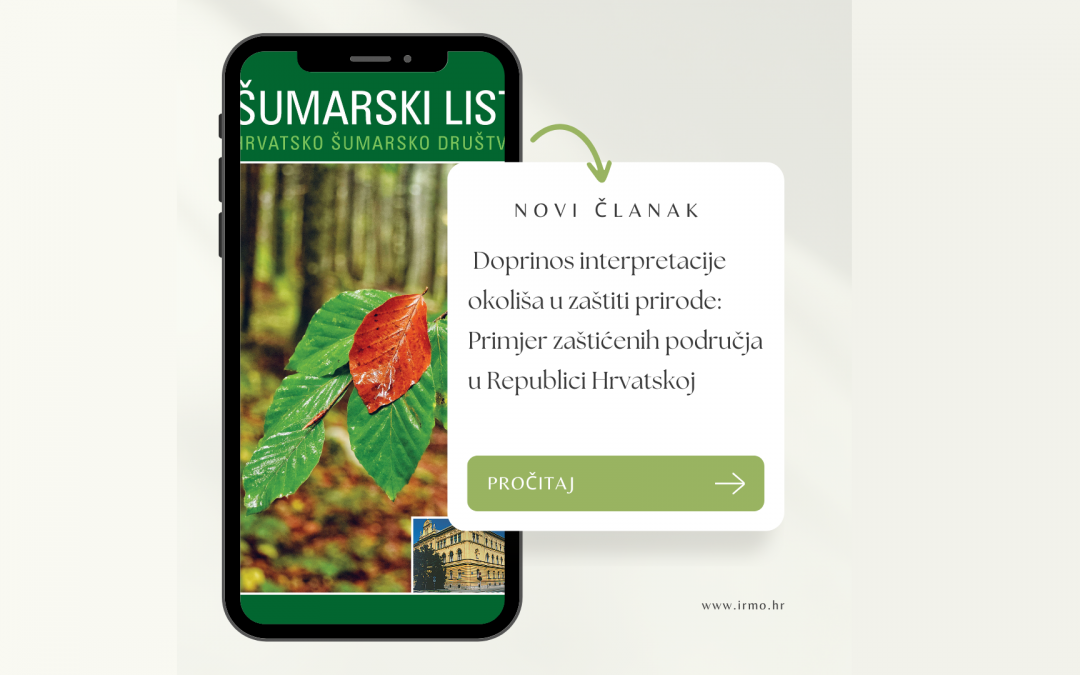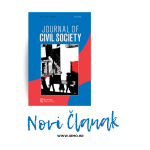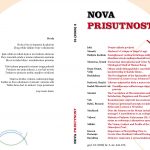Damir Demonja, PhD, Scientific advisor with tenure, from the Department for International Economic and Political Relations, Institute for Development and International Relations, IRMO, Zagreb, together with Vladimir Stojanović, PhD, Full Professor, University of Novi Sad, Faculty of Science, Department of Geography, Tourism and Hotel Management, Sanja Tišma, PhD, Scientific advisor with tenure and the headmistress of the Institute for Development and International Relations, IRMO, Zagreb, Maja Mijatov Ladičorbić, PhD, Assistant Professor, University of Novi Sad, Faculty of Science, Department of Geography, Tourism and Hotel Management and Aleksandra Dragin, PhD, Full Professor, University of Novi Sad, Faculty of Science, Department of Geography, Tourism and Hotel Management published an professional scientific article The contribution of environemntal interpretation in nature protection: The case of protected aresa in the Republic of roatia / Doprinos interpretacije okoliša u zaštiti prirode: Primjer zaštićenih područja u Republici Hrvatskoj, in scientific journal Šumarski list/Journal of Forestry Society of Croatia, indexed in Science Citation Index Expanded (SCI-EXP) (consistuent part of WoSCC-a), SCOPUS, CAB Abstracts, Forestry Abstracts, Agricola, Pascal and Geobase. The publisher of the scientific journal „Šumarski list / Journal of Forestry Society of Croatia“ is the Forestry Society of Croatia.
The full text is available at: https://hrcak.srce.hr/file/464681.
Abstract
Interpretation of natural values and management of visitors in protected areas are related in multiple ways and are an important link in nature protection activities. This paper examines the basic elements of interpretation and management of visitors in selected protected areas of the Republic of Croatia. Protected areas are one of the main attributes of the tourist image of Croatia, with significant economic effects in the generated traffic of visitors. However, this can also contribute to the degradation of natural values or, on the other hand, can help protect nature. Due to such challenges, it is necessary to better understand the importance of visitor centers, tourist tours and the way in which codes of ethics are applied in protected areas. In this paper the representation of environmental interpretation techniques and tools in seven protected areas in Croatia were investigated, using information that was obtained mainly through survey research. The basic results indicate that Croatia has made progress in the previous period in the field of interpretation of natural and cultural values in its protected areas. Such progress is not only related to regions where tourism has a mass character and where visits are significant, but has also been made in remote continental parts of the country. Such an approach in the development of protected areas also indicates that these areas are not only massive tourist destinations, but also places for a more complex understanding of the concept of nature protection and sustainable development associated with the use of its potentials.






